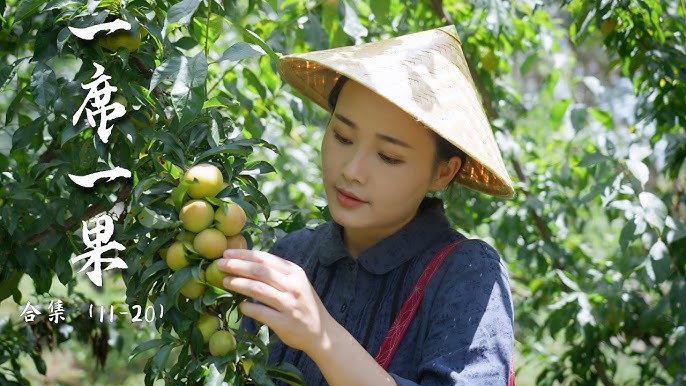By Mitchell Gallagher
In the quiet backwaters of Yunnan, Dong Meihua – though her followers know her by the public alias Dianxi Xiaoge – has done something remarkable: She’s taken the pastoral simplicity of rural China and made it irresistible to millions. In her hands, a village kitchen becomes a stage, and the rhythms of farm life become a story as compelling as any novel. She is one of many rural influencers returning to their roots.
In a digital revolution turning established narratives on their head, China’s countryside is emerging as an unlikely epicentre of viral content. Xiaoge is one of thousands of influencers redefining through social media how the countryside is perceived.
Upending preconceptions of rural China as a hinterland of poverty and stagnation, this new breed of social media mavens is serving up a feast of bucolic bliss to millions of urbanites. It is a narrative shift encouraged by authorities; the Chinese government has given its blessing to influencers promoting picturesque rural images. Doing so helps downplay urban-rural chasms and stoke national pride. It also fits nicely with Beijing’s rural revitalisation strategy.
For decades, China’s countryside was synonymous with hardship and backwardness. The Great Leap Forward of the late 1950s and early 1960s – Communist China’s revered founder Mao Zedong’s disastrous attempt to industrialise a largely agrarian country – devastated rural communities and led to widespread famine that saw tens of millions die.
The subsequent Cultural Revolution, in which Mao strengthened his grip on power through a broad purge of the nation’s intelligentsia, further disrupted customary rural life as educated youth were sent to the countryside for “re-education.”
Meanwhile, the “hukou” system, which since the late 1950s has tied social benefits to a person’s birthplace and divided citizens into “agricultural ” and “non-agricultural” residency status, has created a stark divide between urban and rural citizens.
The reform era of Mao’s successor, Deng Xiaoping, beginning in 1978, brought new challenges. As China’s cities boomed, the countryside lagged behind.
Millions of rural Chinese have migrated to cities for better opportunities. In 1980, 19 per cent of China’s population lived in urban areas. By 2023, that figure had risen to 66 per cent.
Government policies have since developed extensively toward rural areas. The abolition of agricultural taxes in 2006 heralded a major milestone, demonstrating a renewed commitment to rural prosperity. Most recently, President Xi Jinping’s “rural revitalisation” has put countryside development at the forefront of national policy.
Notwithstanding these efforts, China’s urban-rural income gap remains substantial.
Digital-savvy farmers and countryside dwellers have used nostalgia and authenticity to win over Chinese social media. Stars such as Li Ziqi and Dianxi Xiaoge have racked up huge numbers of followers as they paint rural China as both an idyllic escape and a thriving cultural hub.
The Chinese term for this social media phenomenon is “new farmer.” This encapsulates the rise of rural celebrities who use platforms such as Douyin and Weibo to document and commercialise their way of life. Take Sister Yu: With over 23 million followers, she showcases the rustic charm of northeast China as she pickles vegetables and cooks hearty meals. Or Peng Chuanming: a farmer in Fujian whose videos on crafting traditional teas and restoring his home have captivated millions.
Since 2016, these platforms have turned rural life into digital gold. What began as simple documentation has evolved into a phenomenon commanding enormous audiences, fuelled not just by nostalgia but also parts of the economy.
In China’s megacities, where the air is thick with pollution and opportunity, there’s clearly a hunger for something real – something that doesn’t come shrink-wrapped or with a QR code. And rural influencers serve slices of a life many thought lost to China’s breakneck development.
Compared with their urban counterparts, rural influencers carve out a unique niche in China’s vast social media landscape. Rural content creators tap into a different cultural romanticism and a yearning for connection to nature.
But this is not simply digital escapism for the masses. Tourism is booming in once-forgotten villages. Traditional crafts are finding new markets.
The Chinese government has spotted potential. Rural revitalisation is now a buzzword among government officials. It’s a win-win: Villagers net economic opportunities, and the state polishes its reputation as a champion of traditional values. Government officials have leveraged platforms such as X to showcase China’s rural revitalisation efforts to international audiences.

As with all algorithms, there’s a catch to the new farmer movement. The more popular rural influencers become, the more pressure they face to perform “authenticity.” Or put another way: The more real it looks, the less real it might actually be.
Local governments, recognising the economic potential, have begun offering subsidies to rural content creators, causing scepticism about whether this content is truly grassroots.
Yet, for all the conceivable pitfalls, the new farmer trend is an opportunity to challenge the urban-centric narrative that has dominated China’s development story for decades and rethink whether progress always means high-rises and highways, or if there’s value in preserving ways of life that have sustained communities for centuries.
More importantly, it’s narrowing the cultural disconnect that has long separated China’s rural and urban populations. In a country where your hukou can determine your destiny, these viral videos foster understanding in ways that no government programme ever could.
Mitchell Gallagher is PhD Candidate in Political Science, Wayne State University. This article is republished from The Conversation under a Creative Commons licence



